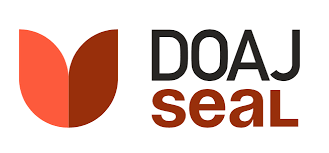Strain Energy Density as Failure Criterion for Quasi-Static Uni-axial Tensile Loading
DOI:
https://doi.org/10.3221/IGF-ESIS.57.24Keywords:
Strain energy density, Quasi-brittle material, PMMA, Failure assessmentAbstract
Strain energy density is successfully used as criterion for failure assessment of brittle and quasi-brittle material behavior. This work investigates the possibility to use this method to predict the strength of V-notched specimens made of PMMA under static uniaxial tensile load.
Samples are characterized by a variability of notch root radii and notch opening angles. Notched specimens fail with a quasi-brittle behavior, albeit PMMA has a nonlinear stress strain curve at room temperature. The notch root radius has most influence on the strength of the specimen, whereas the angle is less relevant.
The value of the strain energy density is computed by means of finite element analysis, the material is considered as linear elastic. Failure prediction, based on the critical value of the strain energy density in a well-defined volume surrounding the notch tip, show very good agreement (error <15%) with experimental data.
Downloads
Downloads
Published
Issue
Section
Categories
License
Copyright (c) 2021 Andrea Kusch, Simone Salamina, Daniele Crivelli, Filippo Berto

This work is licensed under a Creative Commons Attribution 4.0 International License.
Copyright
Authors are allowed to retain both the copyright and the publishing rights of their articles without restrictions.
Open Access Statement
Frattura ed Integrità Strutturale (Fracture and Structural Integrity, F&SI) is an open-access journal which means that all content is freely available without charge to the user or his/her institution. Users are allowed to read, download, copy, distribute, print, search, or link to the full texts of the articles in this journal without asking prior permission from the publisher or the author. This is in accordance with the DOAI definition of open access.
F&SI operates under the Creative Commons Licence Attribution 4.0 International (CC-BY 4.0). This allows to copy and redistribute the material in any medium or format, to remix, transform and build upon the material for any purpose, even commercially, but giving appropriate credit and providing a link to the license and indicating if changes were made.




































